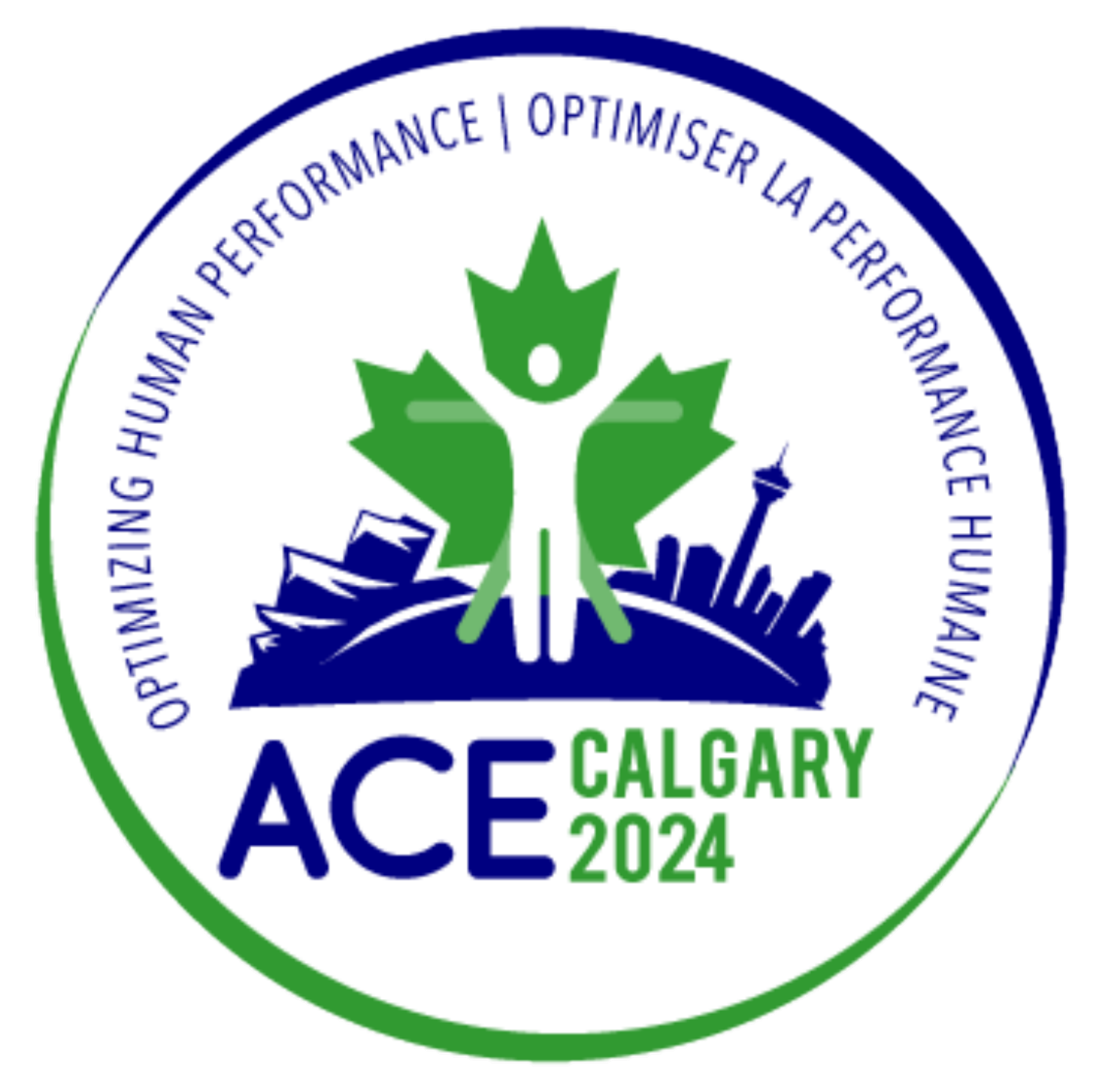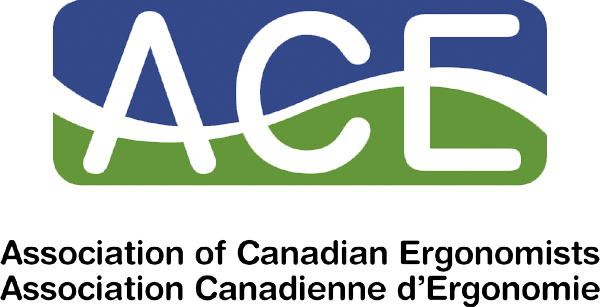
Monday, October 21
- Attend a Full Day Workshop (F1) or one or two half-day workshops (2 morning (M1, M2) and 2 afternoon (A1, A2) options.
- Workshops may be cancelled & refunds will be provided if minimum attendance requirements are not met.
- Visit the Registration page for pricing and to register for the workshops.
- Workshops are provided in English only.
Full day. 8:30 to 4:00
- F1. Human Factors Approach to Safety & Investigations (Heather Kahle & Danielle Lemay)
Morning. 8:30 to 11:45
- M1. Firefighter Lessons Learned on Safety in a Dynamic, Ambiguous, Risky, Complex Environment (HOP in the DARC) (Brad Mayhew)
- M2. Eyes Wide Shut: We Don't Have a Fatigue Problem (Mike Harnett)
Afternoon. 12:30 to 4:00
- A1. Enhancing Workplace Performance through Ergonomic Evaluation (Martin Lavallière)
- A2. Using Human Factors to Improve the Design of Work Environments in Healthcare (Andrea Opyr & Katelyn Wiley)
A3. Learning Teams (Andy Shone)Cancelled
Workshop details are below.
Full Day
F1. Human Factors Approach to Safety & Investigations (Heather Kahle & Danielle Lemay)
- Monday October 21. 8:30 to 4:00
- Revolutionize how you do investigations with this workshop. The Human Factors Approach to Safety and Investigations workshop uniquely equips participants to conduct effective, system-based safety investigations to improve work and advance safety.
- Heather is Principal Consultant/Owner of Ascent Systems Innovation Group. She is empowering organizations and audiences to embrace and operationalize systems thinking and Human and Organizational Performance (HOP) methods. She earned a master’s degree in Human Factors and System Safety from LUND University dedicating her thesis and subsequent career to bridging the gap between ‘work-as-imagined’ (procedures) and work-as-done. With over three decades at the Provincial Safety Regulator in British Columbia supporting serious and fatal investigations, Heather has been instrumental in advancing the application of HOP principles across diverse and complex domains. Her expertise and experience spans regulation development, the development of aligned procedures, learning from normal, injury and error prevention, prevention by design, fatigue risk management, stubborn risk management, and system-centric, integrated safety investigations. Heather's collaborative spirit shines through her work with cross-functional teams to co-devise and implement innovative strategies. Proficient in understanding dynamic and complex work environments such as utilities, construction, healthcare, and forestry, Heather emphasizes the invaluable insights gained from those who actively perform the work. She champions the importance of operational learning and building safety capacity to create effective and lasting impacts. She is currently the president of ACE.
- Danielle is a Canadian Certified Professional Ergonomist passionate about advancing the recognition of the profession of Ergonomist/Human Factors specialist. She worked at Suncor Energy for over four years as the first and only ergonomist/human factors specialist, and led the development and implementation of the Ergonomics/Human Factors Management Standard, while supporting work and ergonomics initiatives across Suncor’s many sites. Prior to this, she has also acquired 10 years of experience in the aerospace industry leading and implementing Ergonomics/Human Factors processes at Pratt & Whitney, along with many other Environment, Health and Safety initiatives. Danielle has a B.Sc. in Kinesiology from the University of Sherbrooke, and an M.Sc. in Kinanthropology, concentration in ergonomics from University of Quebec in Montreal. She is formerly president of ACE for the Prairie and Northern Region.
Morning
M1. Firefighter Lessons Learned on Safety in a Dynamic, Ambiguous, Risky, Complex Environment (HOP in the DARC) (Brad Mayhew)
- Monday October 21. 8:30 to 11:45
- The purpose of this Human and Organizational Performance (HOP) workshop is to equip leaders and safety professionals with tools to lead and win in the DARC. (DARC stands for a Dynamic, Ambiguous, Risky, Complex environment.). Brad will use his experience as a wildland firefighter, as well as case studies from investigations he led, to show universal principles of success in the DARC. The workshop is high energy and highly interactive. And we won't just focus on theory, we will stay grounded in operational reality and talk about how to apply these principles in any workplace. Workshop attendees will leave with tools they can use when they get back to their day job. The workshop has 4 modules:
- Diving into the DARC
- Operational Resilience
- Operational Learning
- Operational Communication
- Brad Mayhew pioneered the HOP Revolution in the fire service. He led and consulted on investigations of accidents and close calls, including the Yarnell Hill Fire (2013), Pagami Creek (2010), Coal Canyon (2010), and Freezeout Ridge (2014), as well as other interagency, interregional, and international investigations. He has a master’s degree in Human Factors and System Safety from Lund University in Sweden. He teaches Human Factors, accident investigation methods, and Operational Risk and Resilience. As a firefighter, Brad served on the U.S. Forest Service Los Padres Hotshot Crew and Santa Ynez Helitack Crew, and has worked for federal, tribal and local government agencies. Brad was awarded the National Wildfire Coordinating Group (NWCG) Paul Gleason Lead By Example Award for Initiative and Innovation, and he authored the Human Factors section of the Incident Response Pocket Guide. As a hotshot, innovator, investigator and reformer, Brad lived the HOP principles in the most extreme conditions. Brad has seen how HOP saves lives and helps leaders win.
M2. Eyes Wide Shut: We Don't Have a Fatigue Problem (Mike Harnett)
- Monday October 21. 8:30 to 11:45
- Fatigue is a chameleon. It disguises itself as a rules violation, a lapse of attention, non-compliance, or more often, “human error”. Organizations deal with the consequences of fatigue-related errors and incidents on a regular basis without even knowing it. It is time to open our eyes to see how fatigue lurks not only in our workers, but hidden in the design and management of our work system. This requires a fundamental change in the way we currently plan work activities, evaluate errors, record incidents, perform investigations, conduct audits and collect worker input. It’s time to open our eyes and look at work through the lens of fatigue.
- Mike Harnett, President of Solaris Fatigue Management, is a widely recognized expert in optimizing worker health, safety, and performance. With over 30 years of experience and a background in human factors, sleep neurobiology, and safety management systems, she has consulted for prestigious agencies like the Canadian Standards Association and NASA, and has contributed to standards such as CSA Z1516 for First Responders' Fatigue Management. Mike's expertise spans diverse industries, and she excels in simplifying complex topics like fatigue risk management for broad audiences, making her an acclaimed speaker and educator sought after globally.
Afternoon
A1. Enhancing Workplace Performance through Ergonomics Evaluation (Martin Lavallière)
- Monday October 21. 12:30 to 4:00
- Join us for an insightful workshop on the critical role of ergonomics evaluation across various industries. This session will delve into the identification of ergonomic risk factors, the customization of equipment, and the implementation of comprehensive training programs. By focusing on employee health and well-being, organizations can significantly enhance the performance, safety, and satisfaction of their workforce. Participants will learn how investing in ergonomic assessments and interventions not only safeguards the health and longevity of employees but also boosts the overall effectiveness and efficiency of operations. This proactive approach to ergonomics is vital for ensuring the success and resilience of organizations in fulfilling their essential missions. Don’t miss this opportunity to gain valuable insights and practical strategies for optimizing your organization’s performance through ergonomic best practices.
- Dr. Martin Lavallière, Ph.D., has been a kinesiology professor at Université du Québec à Chicoutimi (UQAC) since August 2016. He earned his B.Sc., M.Sc., and Ph.D. in kinesiology from Université Laval. His postdoctoral work at MIT AgeLab focused on aging and technology's impact on driving performance, while his second postdoc at HEC Montréal addressed work-related collisions. His research emphasizes in-simulator training programs and tailored feedback to enhance driving behaviors, particularly for emergency respondents and individuals with traumatic brain injuries or PTSD. Martin actively contributes to road safety initiatives as a board member of the Quebec national board of research on road safety (RRSR) and various ISO committees on human-machine interface. He frequently provides expert commentary on road safety, mobility, and health in the media.
A2. Using Human Factors to Improve the Design of Work Environments in Healthcare (Andrea Opyr & Katelyn Wiley)
- Monday October 21. 12:30 to 4:00
- Designing and building work environments that meet the needs of end users, including staff and the general public, is crucial for ensuring optimal functionality and safety. This workshop presentation explores identifying high-risk, high-impact outcomes and provide organizational recommendations in the design and commissioning of new clinical spaces. By integrating human factors (HF) methodologies into the workspace design process, the end user perspective can be effectively incorporated. HF methods simulate the tasks performed by end users, optimizing task efficiency, workflow, equipment accessibility, and communication within the environment. The objective of this workshop is to introduce attendees to HF methodologies that reduce latent safety threats in design, ultimately improving efficiency and effectiveness within workspaces. Examples from healthcare and everyday experiences will be provided to illustrate these methods. The workshop aims to enhance attendees' understanding of HF evaluation methods as they apply to the design of work environments, emphasizing the importance of early integration in the design phase of new builds. Workshop participants will gain a better understanding of how simulations will be used to test processes, equipment, and movement within the physical space, uncovering limitations and identifying latent safety threats.
- Andrea Opyr is a Human Factors Specialist at Alberta Health Services. She received an MSc in Human Factors and Ergonomics from the University of Loughborough in England and a BSc in Occupational Therapy from the University of Alberta. Previously, she has worked as an ergonomic consultant for EWI Works and Occupational Therapist at Millard Health.
- Katelyn Wiley is a Human Factors Specialist at Alberta Health Services. She is also a sessional lecturer for the Cumming School of Medicine, teaching a course on healthcare human factors. She received a PhD in Computer Science from the University of Saskatchewan, and a Master of Environmental Design and Bachelor of Science in Psychology from the University of Calgary. Previously, she has worked for W21C and the Canadian Patient Safety Institute.
A3. Learning Teams (Andy Shone) Cancelled
- Monday October 21. 12:30 to 4:00
- The Learning Teams course focuses on the concept of operational learning and the Learning Teams process as it applies to Human & Organisational Performance (HOP). Learning Teams are a powerful approach for gaining greater insight into and understanding everyday operations. They are now being used by progressive organisations all over the world to review and learn from unexpected outcomes – such as accidents, incidents and near misses – as well as from normal work. Managers from operations, safety, business improvement and quality will find this program both highly engaging and incredibly beneficial personally and for their organisation.
- Andy is the CEO of Southpac Group and founder of the HOPLAB, as well as an experienced facilitator, lead auditor and consultant. Since launching the first training courses for HOP and Learning Teams in the APAC region in 2017, Andy has been helping organisations improve operations and enhance performance. He is a postgraduate of the Griffith University Safety Science Innovation Lab in Brisbane and is a passionate proponent of cutting-edge leadership concepts and safety science.
ACE2024 Home Registration Accommodation & Travel Sponsors & Exhibitors Workshops Program
